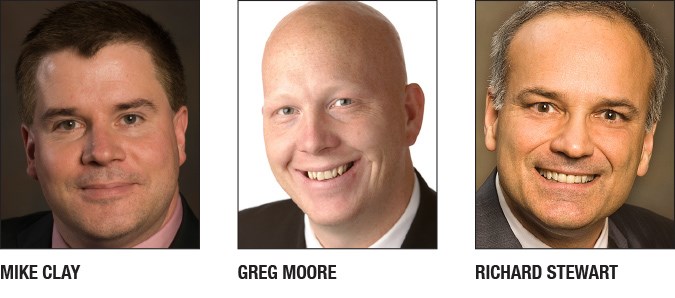Tri-City residents considering a run for a civic or school board seat this fall will have to find creative ways to finance their campaigns.
Tuesday, Elections BC released new rules for donations as well as specific spending caps for each B.C. municipality that will apply to the Oct. 20 race.
Under Bill 15, which came into law last November, organizations, corporations and unions are banned from contributing. That means only individuals can financially support a candidate — but only up to $1,200 per donor.
Candidates have expense limits, too, based on the office they’re seeking and the population of the election area:
• Anmore: mayor $10,000; councillor $5,000
• Belcarra: mayor $10,000; councillor $5,000
• Coquitlam: mayor $89,336; councillor $45,343
• SD43: trustee election area 1 $42,033; trustee election area 2 $15,104; trustee election area 3 $22,368; trustee election area 4 $5,000
• Port Coquitlam: mayor $40,956; councillor: $20,714
• Port Moody: mayor $25,371; councillor: $12,779
Based on the last general election, Tri-City Mayors Greg Moore (Port Coquitlam), Mike Clay (Port Moody) and John McEwen (Anmore) would have gone over the new expense limits had they applied in 2014.
According to election finance disclosures, Coquitlam Mayor Richard Stewart spent $74,478 while Moore paid $50,242 to retain his top job (Moore announced last November he would not seek another term). Clay spent $40,739 while McEwen expensed $17,248; Belcarra Mayor Ralph Drew’s self-funded campaign cost him $371.
Still, most of the mayors’ campaign cash came in from corporations and unions.
Stewart took in $48,250 from business — representing about two-thirds of his funding — while Moore received $38,111 from companies and $1,500 from trade unions; Clay reaped $14,343 from corporations and $6,000 from unions.
Stewart and Clay did not return a request for comment by The Tri-City News’ print deadline Thursday; however, Coquitlam Coun. Craig Hodge, who received the highest number of votes for city council in 2014, said if he runs for a third term this fall, he’ll have to recruit a volunteer fundraising chair (Hodge took in $40,172 and spent $37,728 in 2014).
“It’s going to be tough,” Hodge said, referring to the new campaign rules. “Fundraising is going to take a lot of time…. I’m going to have to reach out on social media, to my family, friends and supporters. To be honest, it’s hard to get people to take a lawn sign let alone make a contribution without a tax receipt.”
Hodge believes the base amount for a civic campaign — to pay for signs, brochures and advertising, etc. — is around $12,000.
Added first-term PoCo Coun. Laura Dupont, who is seeking re-election: “It will make it challenging to approach greater numbers of individual people for support but, overall, it should keep municipal campaigns from being ridiculously expensive.”
Coquitlam Coun. Bonita Zarrillo, who has an election website, said she plans to hold fundraisers and run a “grassroots campaign. It takes a lot more voter contact.”
But McEwen, who is also running for re-election, said Anmore candidates shouldn’t have a problem as “we don’t have union or corporate donors.”
Already, a number of Tri-City residents have announced their intention to seek public office: Rob Bottos will run for Coquitlam council; in Port Coquitlam, Priscilla Omulo and Nancy McCurrach have also declared their candidacies for council, and Christine Pollock for school trustee.
General voting day is Oct. 20 with nominations open Sept. 4 to 14.



